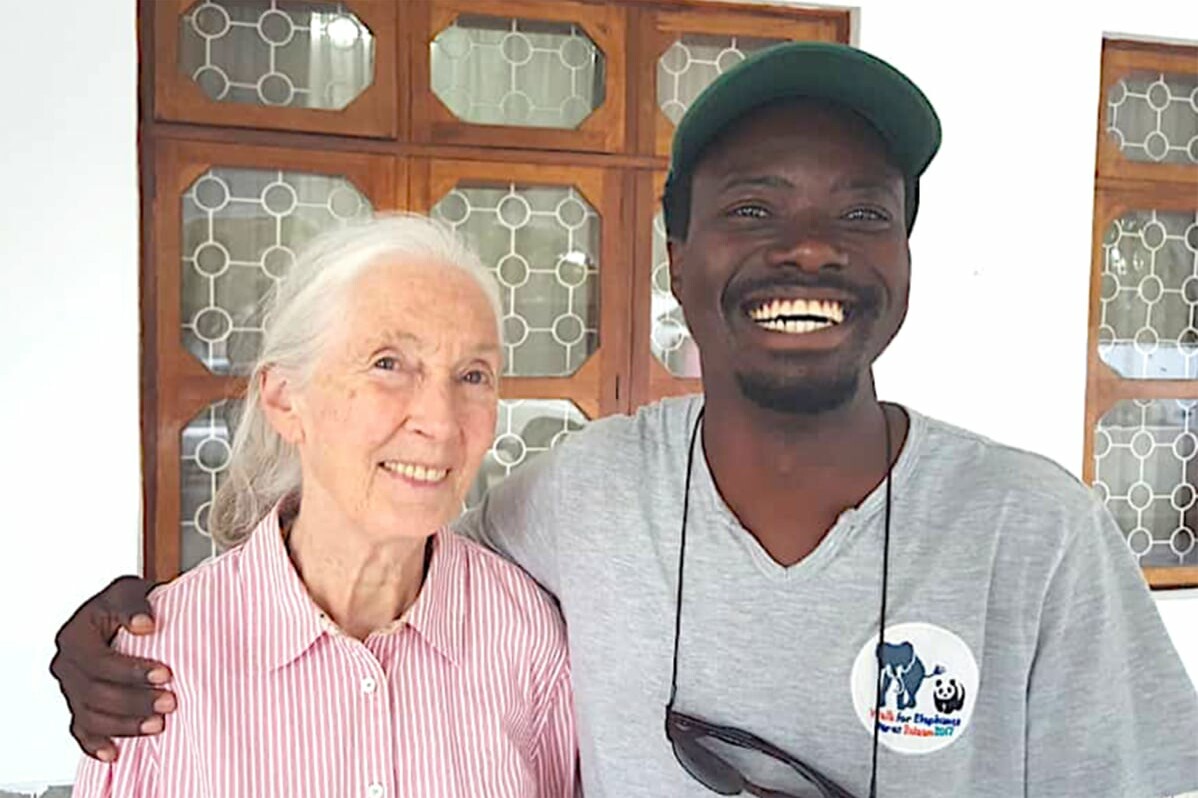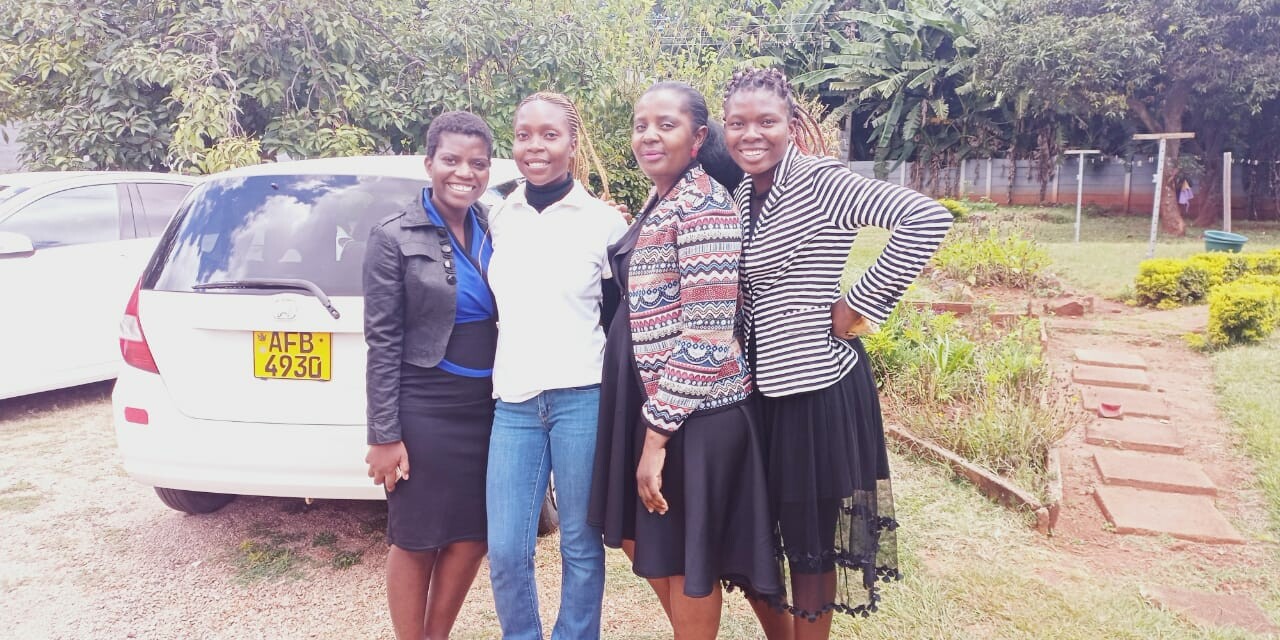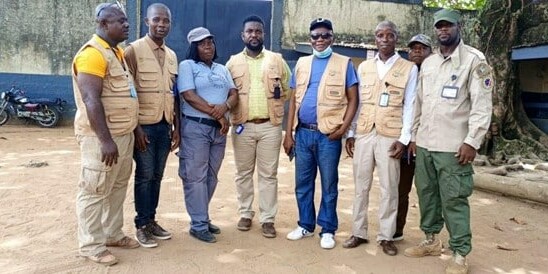By Yusuph Masanja, Global Alumni Coordinator
Welcome to the second chapter of my epic trek!
Click Here to read the first chapter of Yusuph’s journey to the arctic, which was supported by his mentor, Dr. Jane Goodall, and the expedition was led by Sir Robert Swan, founder of the 2041 foundation, environmentalist and polar explorer, the first person to walk on both poles. The expedition included individuals from 27 countries, but Yusuph was the only one from Africa.

“Is the Ice truly melting?”
After I returned from my Arctic journey, Ian, one of my friends in Dar Es Salaam, paused during his partner’s birthday dinner and asked if the arctic ice was truly melting due to climate change, “because at least you have been there, so, I can believe if you say it’s true.”
It conjures up mistrust when, on an everyday basis, what you hear from media and some elites’ debates is mostly news to justify inaction in the face of the problem. Furthermore, it is sad to see that some of those who agree and are dedicated to working towards solutions are continuing to treat the issue as some sort of a “future problem” – contrary to our current reality as we know it. It is due to such inaction that we are continuing to see a continuous rise in global warming levels every year despite a number of international treaties signed and interventions implemented.
My country is already experiencing the impact of the climate change with annual events that cost in excess of 1% of GDP each, affecting millions of people and their livelihoods (Tanzania’s first INDC). My government analyzed the cost of mitigating the impact on public health, energy supply, water resources, agriculture, etc. to be approximately USD 60 billion by 2030 in mitigation investment. And this is a story of only one African country, so one might wonder, “What’s the story of a whole continent at large in line with mitigation and adaptation capacities?”
So, yes, homie – the ice is truly melting. I can report that myself having been there this past June!

26 countries united, for one bold, audacious and humanity’s most important quest.
Transforming the global economy into a more climate resilient path was one of the goals that brought us all together. We spent two weeks gathering and learning about the scientific facts, inspiring each other with our track records of efforts to shaping the future, and discovering innovative solutions for the planet.
In one of my reflections, partly due to a question from a friend I had met, I found myself contemplating the feeling of being trapped on a ship far from home with zero possibility of leaving should one of us feel bored, agitated or just happened to dislike someone! I began using this analogy to the ongoing discourse around climate change and how all of humanity has no other planet to escape to, should warming impact becomes most catastrophic. My instinct, as a consequence of experiencing this feeling, was that I should do my best to understand everyone around me on the ship and strive for coexistence to successfully move ahead together towards a common goal despite our individual differences.
Such instinct gave rise to a newly adapted frame of thoughts pertaining to how humanity must treat one another in order to solve the climate crises sustainably. The frame contained a value of responsibility in extending ourselves spiritually towards the growth of our collective well-being. And by so doing, discovering how our dialogues and actions shall improve as a consequence of truly listening. Listening to the people around us, to the world, and to the planet – because that’s what our extension will do to us, and it is good.

Storytelling for Change
Throughout the expedition, we harnessed the power of storytelling to communicate convenient solutions and climate resilient pathways. Kyle, one of the team leaders, led a crucial series of story-telling coaching, which rendered me the first on spotlight! I had to come up with a story from a picture I had taken previously when we visited the Fram Museum while incorporating principles of storytelling in my reflection. Considering my nervousness and self-conscious tendencies while on stage, the challenge was helpful in building my confidence and public speaking skills.
The story of the Norwegian polar exploration and the ship “Fram” was remarkable to me, given the sophisticated techniques used to navigate to North and South poles in the 1890s. I was impressed by the ship’s design and most importantly its preservation so that we, and future generations, can visit to see it in a museum.
The story captivated me so much in that, as bad as things might be going now for us, we have gone so far past radical adversaries that faced us historically and, perhaps, if we – just like the “Fram” explorers – could harmoniously work together, the climate crises will be addressed.

The Polar Bear Talks
Africa’s proverbs are still shaping my society as they provide best moral conducts as well as important explanations on various misfortunes. Naturally, we don’t have polar bears in Africa, but the following proverb “Rain does not fall on one roof alone” crossed my mind when I stood in a zodiac looking at a family of polar bears.
The proverb explains a natural cycle of life in a metaphorical manner. Its meaning, “Trouble does not discriminate. It comes to everyone at some point,” struck me. I knew, from the polar bear presentation given by one of National Geographic guest speakers, that these animals help keep our ecosystem’s health at balance. Hence, their endangerment indicates that something is wrong in the broader ecosystem. Their home is melting twice as fast as other parts of the planet. Being on top of the food chain, them being at risk, places other species in the ecosystem at risk too.

Just like how our elders would speak such proverbs to children to teach them a lesson, I felt sort of hearing the same coming from the elder polar bear as we quietly stood watching them. It’s obviously the case that our homes are in as much danger as polar bears’ habitats; the impact is being felt in most parts of the world already. Yet another Swahili proverb contains enough wisdom to help us through, “Where there’s a will there’s a way.” Maybe, if we get our intentions clearer than we already have right now, then humanity will prevail and reverse the change.
The Disciplined Voice Said, “You Are in Charge of Africa”

Sir Robert’s final remark to me, “You are in charge of Africa,” on the last expedition day in Oslo generated a sense of broad responsibility within me. For once, I began to think not only of Tanzania, but Africa at large. For once, the wise words of Mwalimu Julius K. Nyerere and those of Nelson Mandela started to emerge from my subconsciousness. These are two people I know to have striven for a free continent. Such freedom is now in jeopardy, as African economies tap on pathways that led “developed” economies to their current emission levels.
Upon my return back home, I started talking and thinking about ways I could make my contribution counts. A friend’s mention that became a mantra: “You have a responsibility to all Africans who were not as privileged with the opportunity to witness and learn about climate in the Arctic, and who have no idea about its implications” started to dawn on me.
So, to begin with, I spoke with a few students and teachers in Arusha, Tanzania. The conversation helped me to discover a goal to work towards: Engaging young influencers into experiential training programs on sustainability. I have started working on creating Africa’s center for climate change awareness in Tanzania to engage young people in sustainability education.
Learn more about the expedition on the following short videos:
Yusuph and Robert Swan at the Arctic Cycle by Kyle O’Donoghue
Climate Force video about the expedition Kyle O’Donoghue
Also, feel free to connect with me via facebook at facebook.com/masanja.yusuph



